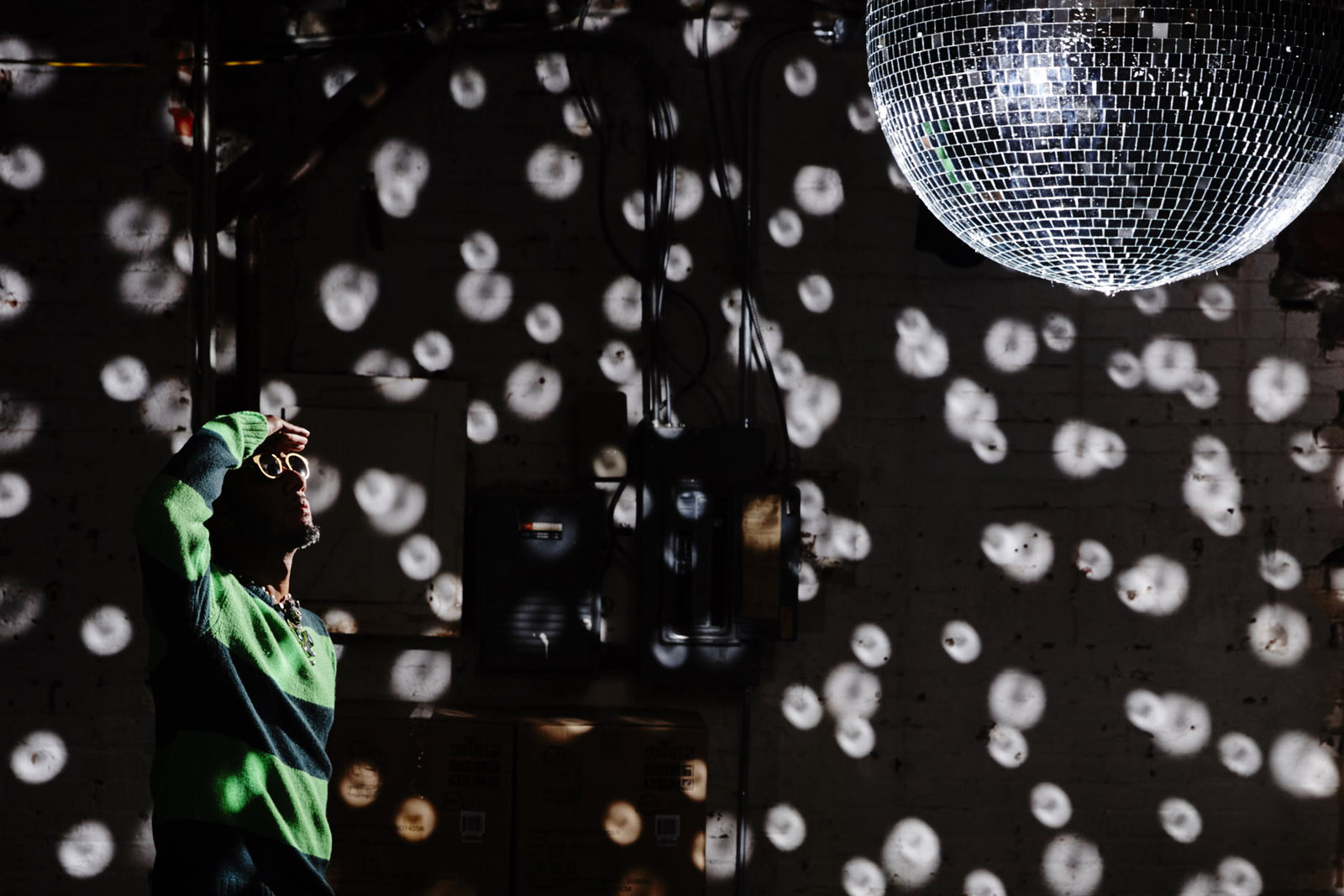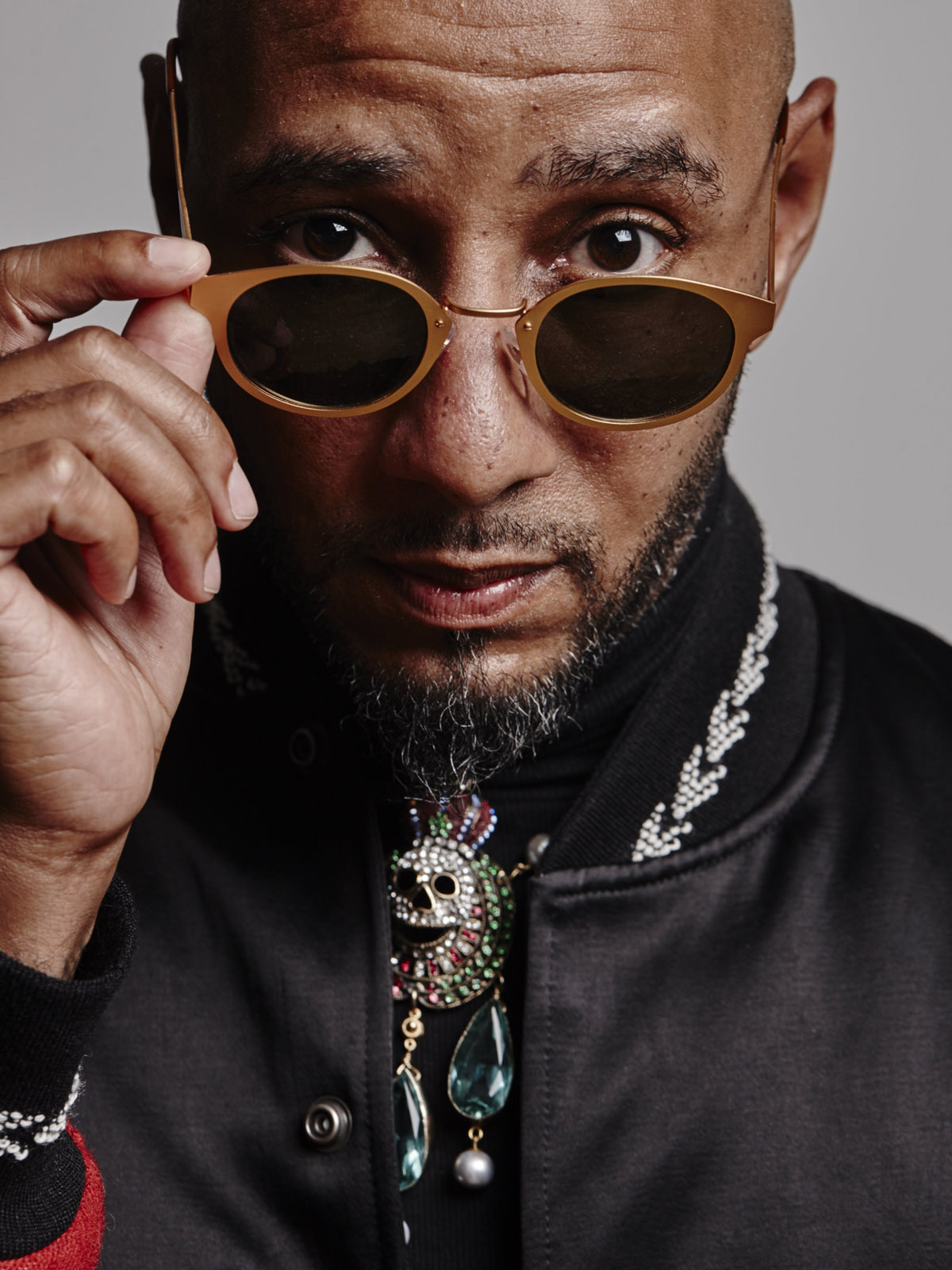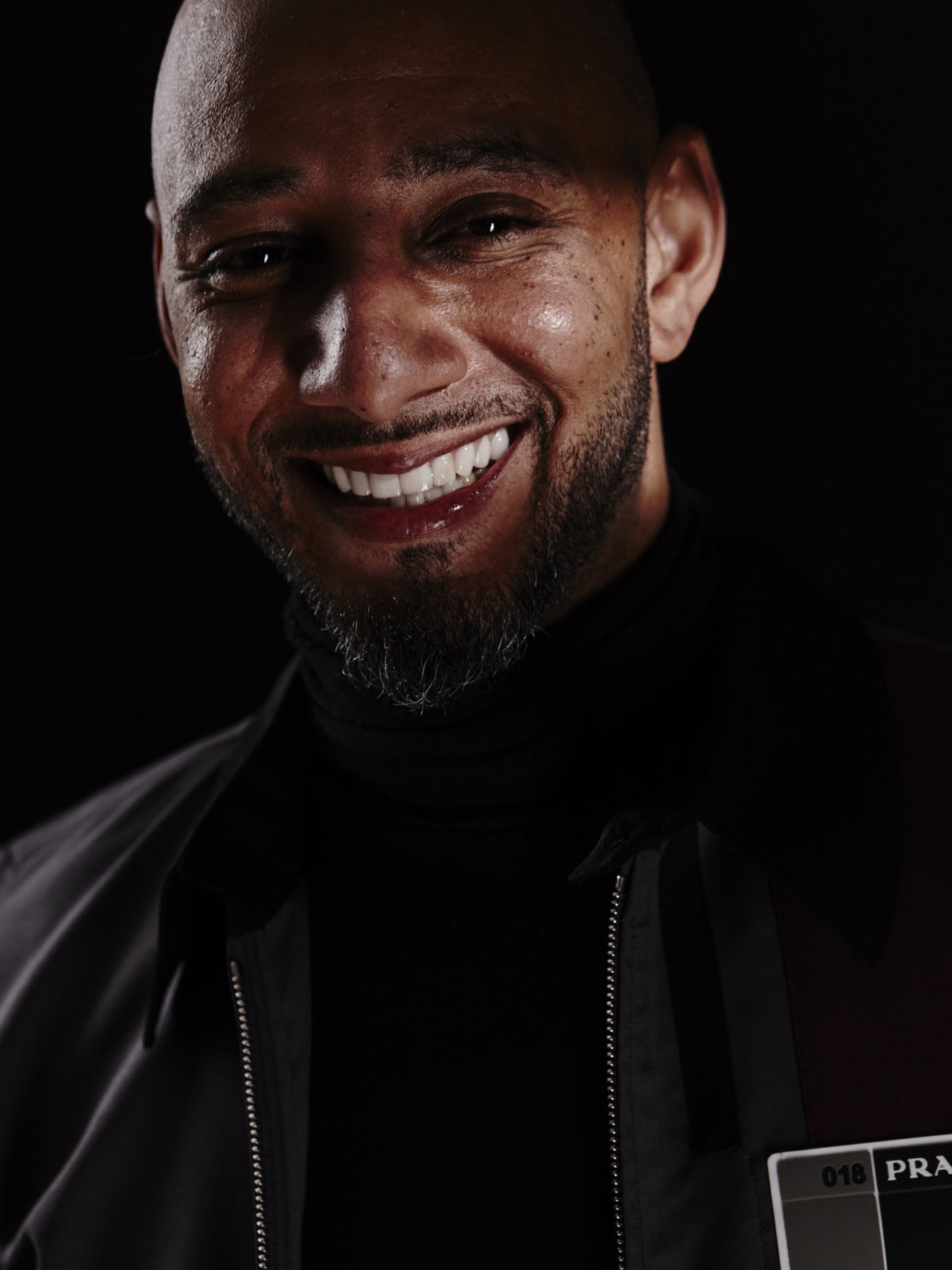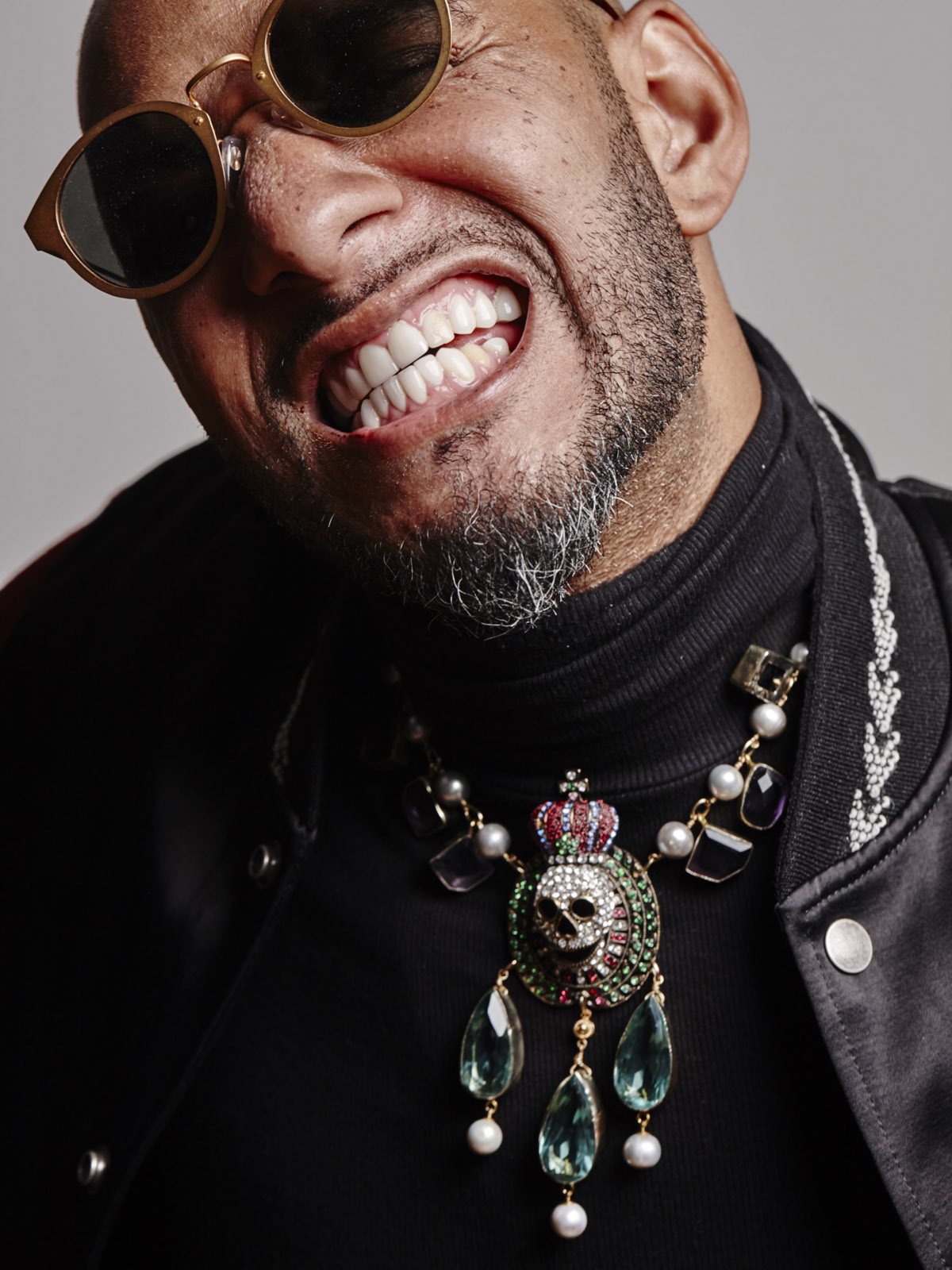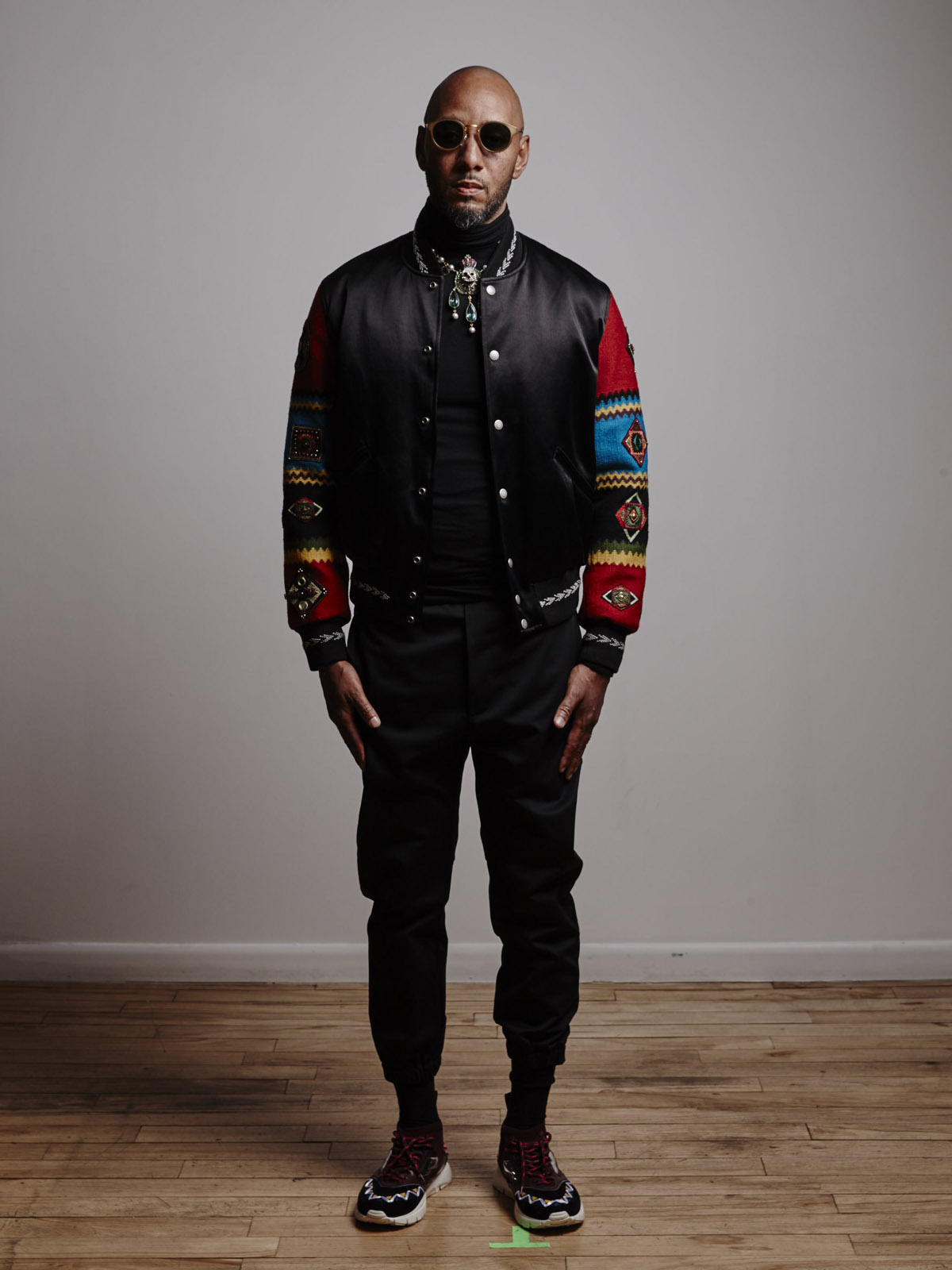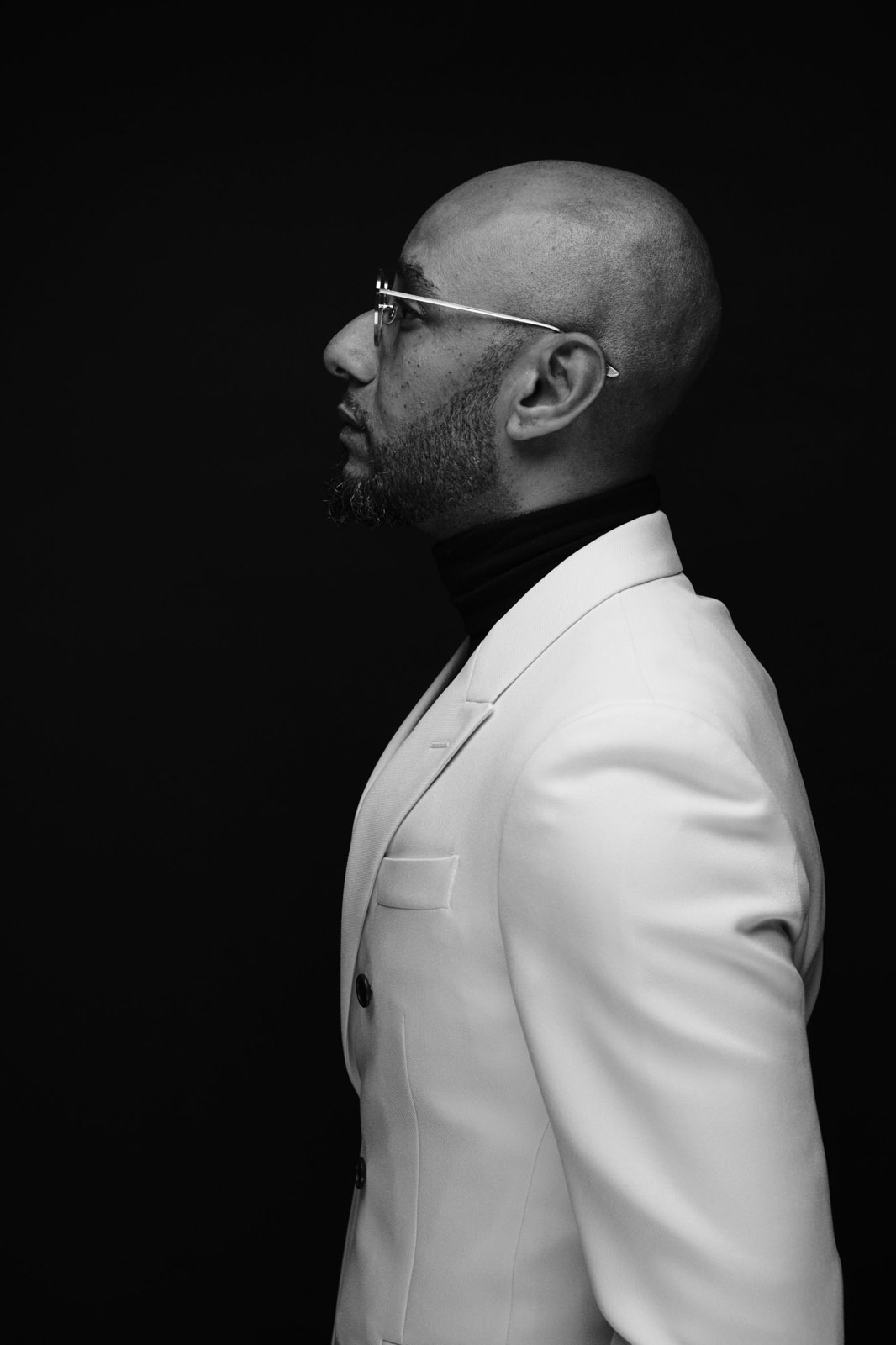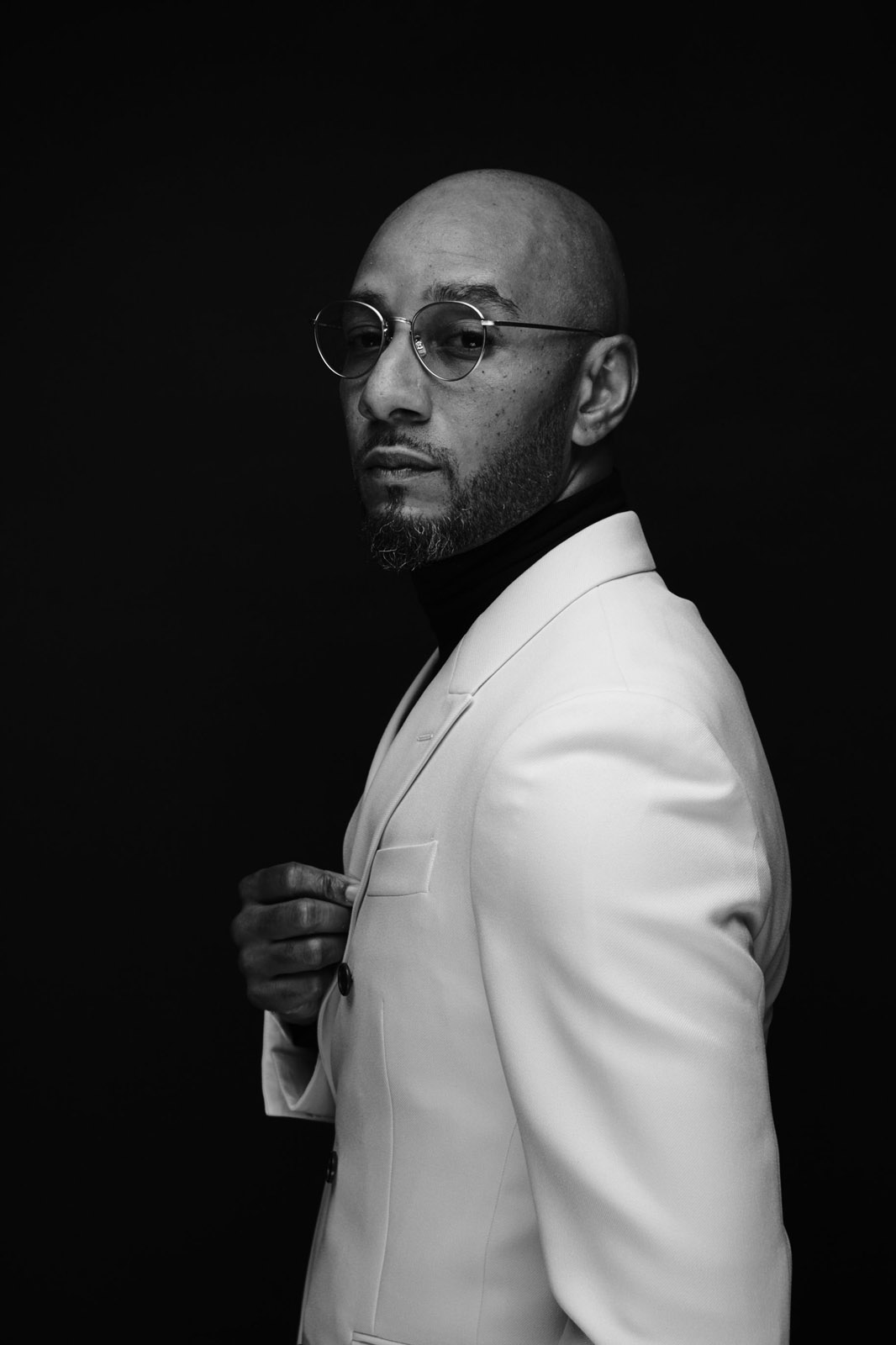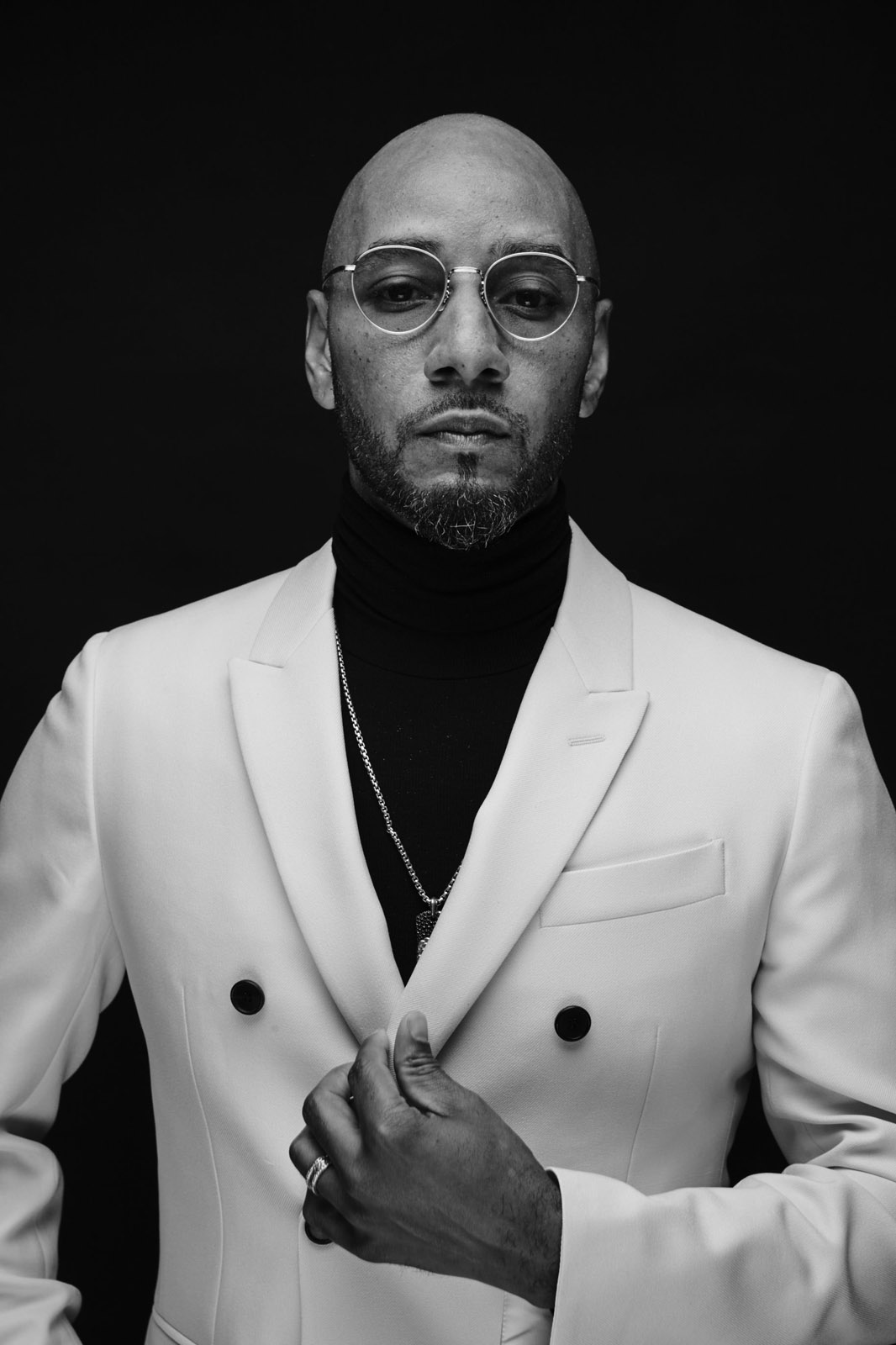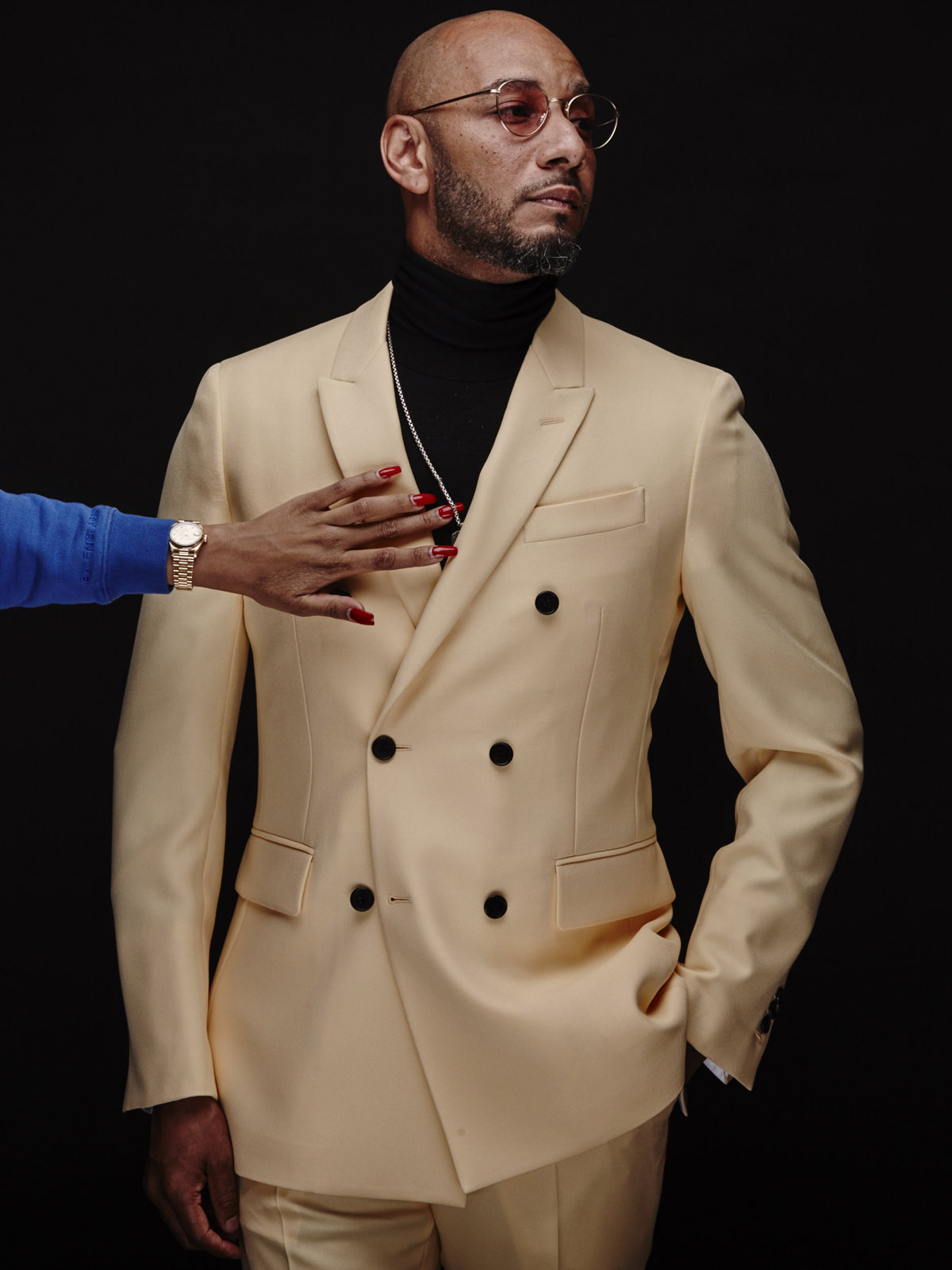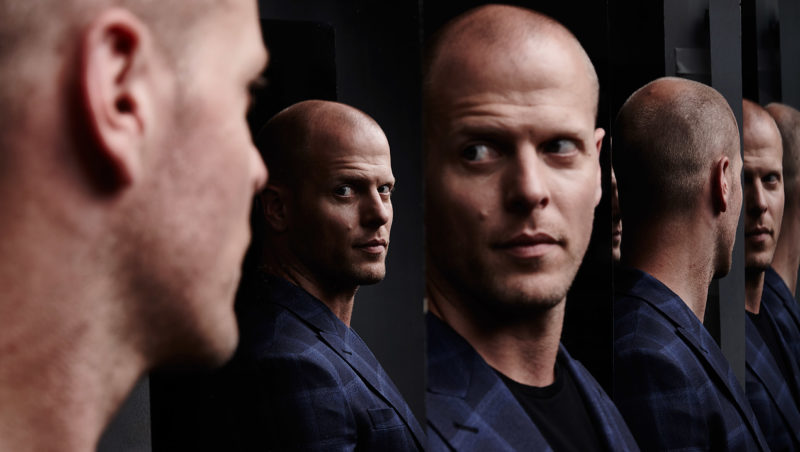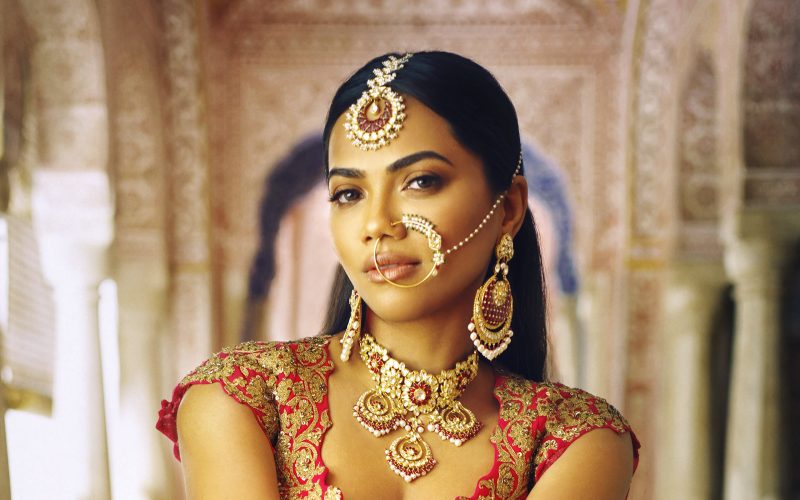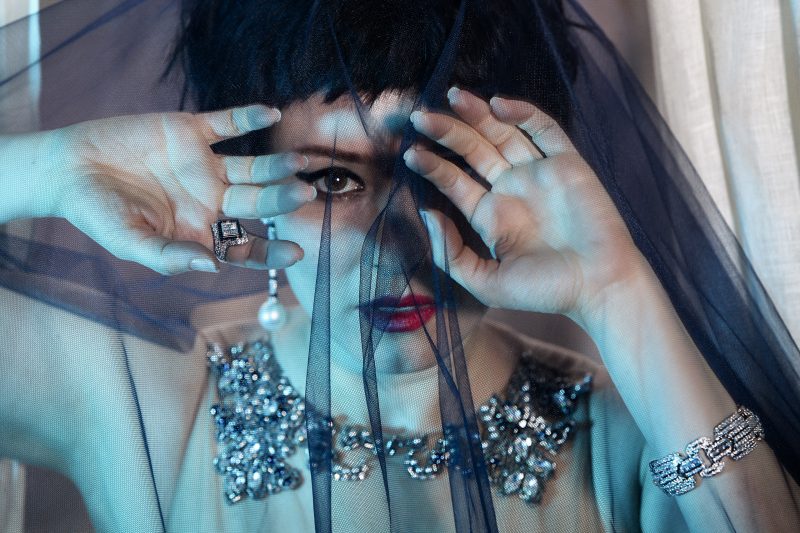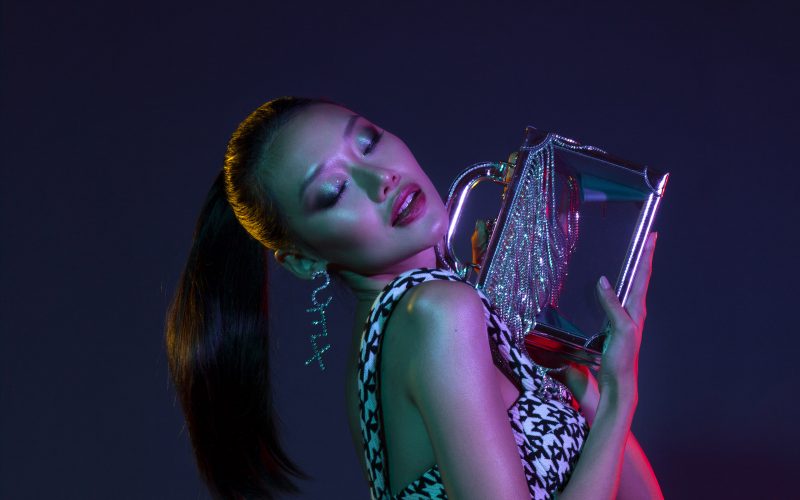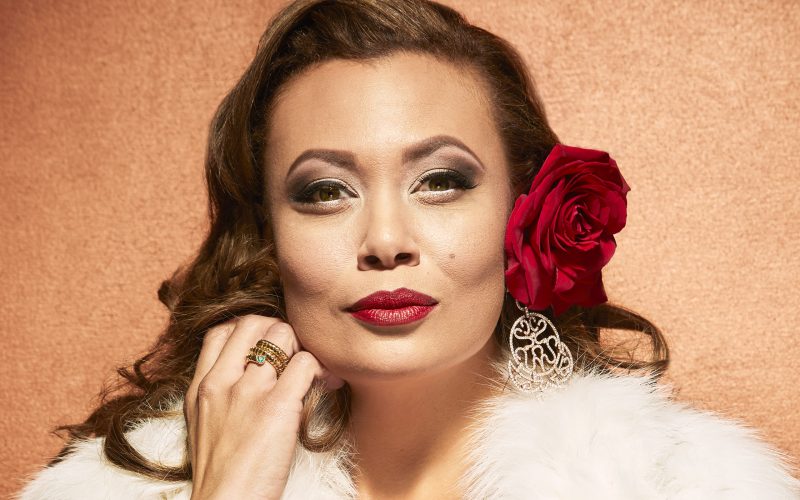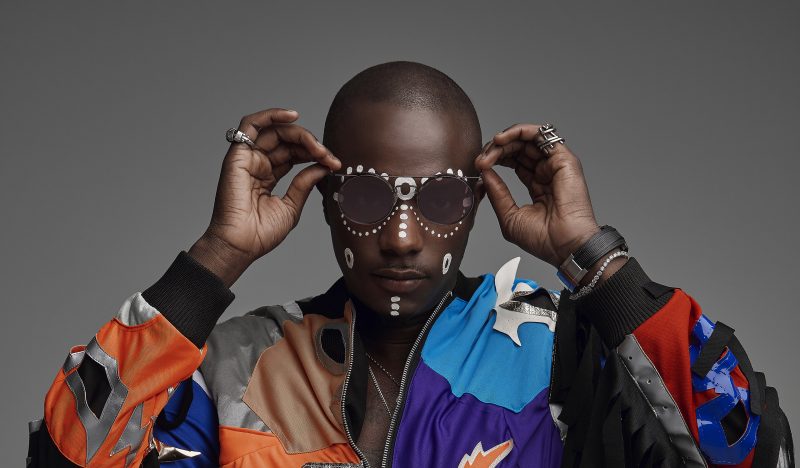photography by NIGEL PARRY
produced by EDGAR ACERO
styling by FATIMA B.
grooming by MIA SANTIAGO
shot at CADEN, NEW YORK
article by JULIA WOOD & JIANNA BALASCIO
article production by JILLIAN KORKOSZ
interview by YELENA DEYNEKO
Swizz Beatz is once again shocking the music industry with a fresh take on sound. After a long and acclaimed career in music, he is prepared to bring forth even more passion to the scene that he considers a family legacy.
As every superhero has a separate identity from their everyman self, Swizz Beatz tells SNFM that Kassim Dean went to business school and is a family man, whereas Swizz Beatz, his musical alias, got kicked out of high school and is endlessly creative. “Swizz is rough riders,” he tells SNFM.
Kassim Dean exemplifies a truly free creative. His diverse background is comprised of a love for music and art, and a degree in Business. Swizz Beatz is Kassim Dean’s musical alias, created through the manifestation of his multifaceted talents.
Swizz Beatz opens up to Spirit & Flesh Magazine about his upbringing and how it has influenced him as an individual. Throughout his life, Swizz Beatz has been able to channel his gifted nature and provide society with a sound that represents cultural nexus of the Bronx and Atlanta. He discussed with us the transformative hardships that have guided him toward success within the industry.
Dean talks about his newly released album Poison in his interview with Spirit & Flesh Magazine.
“It’s not what people expect,” he tells Yelena Deyneko. “Even the title – so many ways to interpret: Poison, Poise on, Poise son… I want people to do a deep dive into my whole album, into who I am. I could get whoever I wanted for the record, but didn’t want to do promotions for songs with the biggest names. To make your whole album a highlight, you gotta get rid of songs that kill other songs. I am not compromising quality for no hype.”
With such a lengthy gap between his last solo appearance in the music industry, Poison can be expected to stir excitement in the hearts of hip hop fans. Poison is available on Apple Music today.
Your real name is Kassim Dean and your stage name is Swizz Beatz. What’s the story?
Swizz is rough riders, more street, more performance, more music. Kassim is more family, art, very analytical, entrepreneurial. Swizz is more creative – well, Swizz and Kassim are both creative, but Swizz is more creative – no red tape, will figure out the rest later. Haha! Kassim Dean went to business school and Swizz Beatz got kicked out of high school!
Why go to business school after already having many successful projects?
I was doing mergers and acquisitions without an education, bringing hundreds of millions of dollars to businesses, but people still treated me as a music producer rather than a businessperson, so I wanted to change that perception and be able to articulate any business ventures without a lawyer present. Three years of school showed me how to make ideas a reality without unnecessary people telling me my every move; I learned so much, I feel like I’m too dangerous sometimes. I can dissect any conversation, any idea in seconds. You are back into music scene. Why did it take ten years to make your album Poison? I wanted to step away from music and come back fresh. I was successful in music since I was seventeen, and I’m forty in September. I needed to explore what else is out there, not just wait until I run out of hit records and start planning my future at fifty. I want to end on a high note, so I diversified my portfolio into art and businesses, and entered into these territories while I’m warm and current and fresh.
Tell us about Poison.
It’s not what people expect. Even the title – so many ways to interpret: Poison, Poise on, Poise son… I want people to do a deep dive into my whole album, into who I am. I could get whoever I wanted for the record, but didn’t want to do promotions for songs with the biggest names. To make your whole album a highlight, you gotta get rid of songs that kill other songs. I am not compromising quality for no hype. I am also realistic. If I don’t shoot to the top, it doesn’t matter. There’s been a lot of new energy on the scene since I’ve been gone, so it’s not about jumping over my core to the top because I have the key to the elevator. I want to go back down and bring everyone up with me together. I’m paving the foundation so my next record will do even better. I have four planned: Poison, then Return of the Showtime, then an all energy record called Beauty & the Beatz. Then I tap music from Asia, India, Africa and other countries for Global Mindset. Then I start over with Poison Part Two. People will see me being back in the music space and identify with the consistency and the quality.
How have you evolved?
When I started out on the music scene I was just having fun; now I know what I’m doing. I’m more patient and can withstand different climates. I have witnessed three generations of music and I am able to identify what I can add to the world. As a cultural leader, I have a responsibility to share my knowledge acquired over the years.
How do you share your knowledge?
My pride is the Dean Collection, which started out as a personal art museum for my kids to run. A branch of it is “Dean Collection 20 Startup” where we had people from around the world send business plans for their art show, and professionals on the art and the business sides pick twenty artists to receive $5,000 each. There were also four chances to get an additional $25,000 based on their performance, so you really had to make the initial grant work by using your resources and community. Your hometown has to support you first; if you can’t make it there, you will probably have problems with the rest of the world. Out of the businesses I own or am involved with, this is my main focus right now, and the biggest goal is to get artist royalties for their work and help them to be sustainable without a big brand or gallery behind them. Art business alone is a several-billion dollar industry and yet most artists are broke because they don’t get the fucking royalties, and I have real big fucking problem with that. At the moment, once an artist sells their work, it’s over for them, but, say, 5% royalties could be their retirement plan. As a musician, I am getting royalties paid to me from 500 something songs I’ve done since I was seventeen; what makes me different than a painter? We both create.
You paint too, right?
Only as a therapeutic exercise. For real artists, it’s their income. When I paint, it’s a spiritual performance; there are no rules, it makes me feel free as there is no one to impress. If I show it to you, I really love you. Even if you say you hate it, it wouldn’t bother me because I love it for the moment it gave me. I haven’t painted for a while, because my passion now is to help artists who are better than me. It feels good backing other people. I’ve been blessed with success in music and I said, to paint again, I need to help 100,000 other artists get on their feet. We are getting there, but still have a lot of work to do.
How did you start painting?
I said, “Man, for the price of these paintings I’m collecting, I can try it myself.” I got all the brushes, acrylics, oils, cameras, you name it. I wasted so much shit; I had a basketball court in my house full of things I’ve done and left it all there when I sold the house, because they were the expression of what I was dealing with then. Let’s say I produce fifty tracks one night, I pick three I love and erase the rest. I only want music on my [hard] drives that, if I press “play” on any of them, I am cool with it. Why do I need things I don’t feel are up to my standards? Let things go to allow new things to come in. That’s how I move.
Some people’s greatest work emerges from their limitations. Do you have a heroic flaw?
I care too much. I am trying to embrace it so I don’t end up not caring. The easiest thing is to just say, “fuck it, that’s not my problem,” but the right thing to do is to embrace the challenge, but it has to be an equal exchange. Imagine caring when the other person doesn’t. Like, why should I care about your future more than you do? But perhaps they don’t have the resources, or the methods, or the information. You can’t just walk away, you have to see if they are willing to learn and come back a better person. If I believe in someone, I have to try to show them how to go beyond their surroundings, be their eyes and their ears and their solution. And that’s how I was given the chance. Imagine if people – my family, my uncles, my friends, record labels – listened to my excuses, if they had written me off based on me not believing in myself, there would be no Swizz Beatz. If someone took the time and guided me, what makes me so special that I shouldn’t do that for others? That’s my responsibility.
That’s a lot of trust on both sides.
Yeah, that’s the risk we take. My survival is based on intuition. I see things before they happen. People can come in all shapes and forms, a lot of wolves in sheeps’ clothing, so you have to be attuned to how you feel. Not claiming to be a psychic; it’s just clear to me. It saved my life many times. When I was younger and my mother would say, “you’re gifted,” I thought it was from a creative standpoint, but she meant spiritually. My friends called me a lucky charm. I never questioned my instincts, I am just being me, being connected to the universe – you just know it and you don’t question it. Look, the zone is just two things: good energy or bad energy. When everything feels in sync, I am in my zone, but if the energy is fake in a room, I just have to leave. I am very sensitive to it.
How have your relationships changed through realizing this?
At first, I was saying yes to everyone. A couple of years ago, I started paying attention to what was going on around me and questioned why people had no goals. We all were involved in music hardcore, you know. Rough riders. Having all these people around me felt powerful, and if you’re gonna put your life on the line for me and all you need is $5,000 dollars – here, take it. So people got used to that. I was young, had millions of dollars. I was their way out.
Look, the zone is just two things: good energy or bad energy. When everything feels in sync, I am in my zone, but if the energy is fake in a room, I just have to leave. I am very sensitive to it.
Were you creating something together?
That’s the problem: Nobody wanted to create anything and I was taking care of all these grown men. You have to understand the mentality of the ghetto, or the hood or whatever you call it; we like a lot of excuses to enable our laziness. My uncles were the bosses, but I challenged them because they pacified people: guys would ask for a thousand dollars, and we had millions at this point, so it was easier to help them. But I thought, “Whoah, what are you doing to help yourself?” I came up with a strategy that I’m not helping anybody unless they have 80% of a plan. I had a meeting and said, “I love everybody here and if you take your life seriously, I will too. If you want to go to culinary school, engineering school, I will pay for it. But I am no longer giving money just to freestyle with no plan.” Only four out of fifty people stayed.
Why?
People don’t wanna fucking work! I’m cool with them, but that was my exit from the bullshit, because people are leeches and they suck until you have no blood left. I work every day. My father works with elderly people, he loves helping people that can’t help themselves. If my dad works, why shouldn’t you?
Did intuition help you through challenges you faced while growing up in the Bronx?
I never had a problem doing what I love. Music and art were around every day and I learned how to DJ very young; my uncles came to me because I was the only person in the family doing music. I was the youngest person cutting hair in the barber shop.
Packing bags in C-Town, I was making $200 a day, which was a lot back then, and it became dangerous so my grandparents made me stop. I wasn’t with a gang, but in certain places at certain times people would inevitably have problems with anyone from a different neighborhood. I got kicked out of those schools; they weren’t academic, they were territorial. That’s why I went to Atlanta when I was fourteen; my stepfather got transferred and I started over.
When I was younger and my mother would say, “you’re gifted,” I thought it was from a creative standpoint, but she meant spiritually.
Did you ever have a grand plan?
I just planned on having ultimate fun. Since I was a little kid, I just wanted my music heard in cars, on the radio, skating rinks, in clubs. I was doing mixtapes, but didn’t know I was producing; I was just making intros and my uncle said, “Take all the words out, I want to just hear the beat by itself. That’s one step further than DJ-ing. Do more of that.” It started happening underground outside of my family, as I kinda had to prove myself. Of course, coming from the streets, with quick success from zero to platinum when I was eighteen – and my first million dollars – people said, “You hit the lottery.” But it wasn’t like that. My uncles already had money, cars, watches, clothes; it was just the wrong type of money, so when new money came, it was the same thing, just clean money. I didn’t realize that for a while.
Clean money?
Not drug-dealing money. Before that, I grew up seeing my uncles hustle, and my grandparents told them to get out of the street; they invested in music, which birthed me and the whole legacy. I had checks coming in and I saved them in a shoebox. All I wanted to know was, “Is that car passing by playing my song?” Then I got a call from this company telling me about $700,000 worth of checks they sent me, and it hit me, like, “Those were real?“
How could you not realize they were real?
Nobody told me I could be making this kind of money off of music. I was just having fun. I still do music as a passion, and the enjoyment and blessing of millions of people. The money is a bonus.
You never go after money?
No, because you could compromise your craft. I’ve left money on the table many times over to maintain my integrity and authenticity. I know a lot of poor kings alone on their boats with no family, and that shit is like, “That’s what you worked so hard for?” For me, wealth is being on one of those boats showing your family the world they would otherwise never have seen. Having a good heart is the best currency, because you can bring more positive energy and sleep at night. That’s wealth to me. Your kids are exposed to a wonderful lifestyle. We don’t raise them based on materialistic things. One time, my son Egypt, who’s seven, was in the airport playing with a kid who had autism, and he started paying extra attention; the boy’s mom broke down crying and said no kids treat him like a human being. We put them into real life, because you can’t put them so high that if they hit the ground, they can’t figure it out.
Will your kids have to figure out their own way?
They have no choice. My oldest son is seventeen and figuring it out with his album; I’m not calling anybody. Once he sells a couple of tracks, he will celebrate more if he can honestly say, “My dad didn’t do that – I fought and got that on my own.” You can’t expect them to survive if you put out fires for them. I am hardcore with this shit. They might not understand now, but they know where I am coming from.

